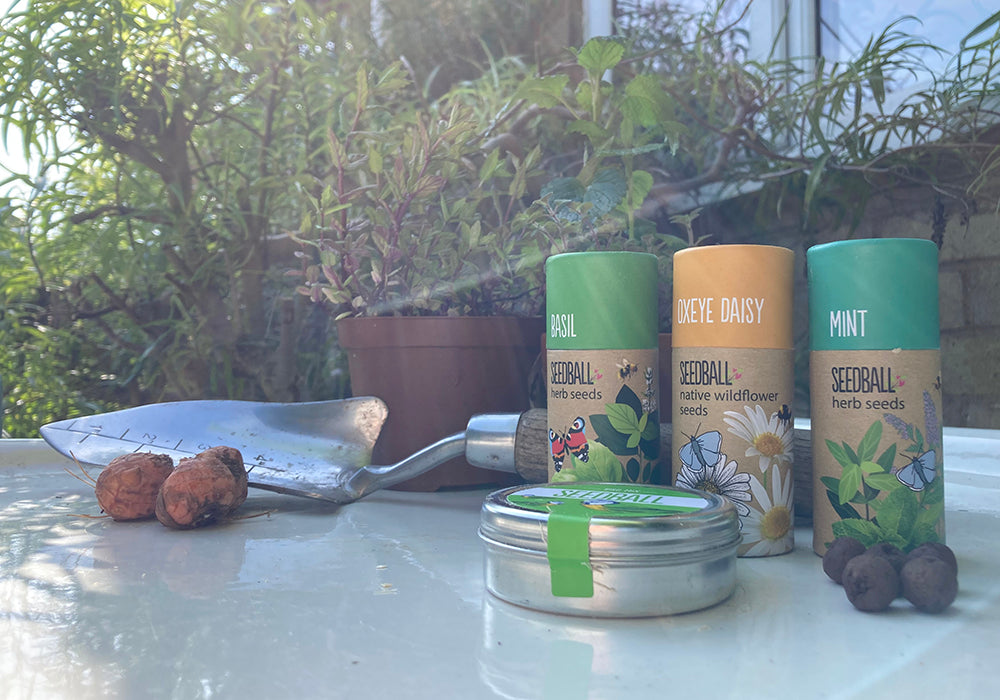The long, cold, dark of winter is finally behind us and for those with green fingers the new growing season is here. If you’re new to gardening or new to sight loss, there’s plenty of advice to get you started.
RNIB has worked with the charity Thrive to produce advice and services for gardeners with sight loss. You can find information and links to a factsheet packed with tips on our Gardening page.
Whether you’re tending a windowbox, marking out an allotment or pottering in a garden, the joy of growing is yours to discover.
Our Seedballs are a useful way to get growing – suitable for sowing on to the ground or in pots, the seeds are bound in a ball of clay and chilli (the latter to dissuade wildlife from eating the seeds) so you don’t have to worry about scattering tiny seeds around. Our range includes wildflowers to attract wildlife, and edible plants, including mint, salad leaves, basil and chives.
A great plant for pots and hanging baskets is nasturtium. They have large seeds (each is about the size of a small pea), are very easy to grow and care for, and their yellow, red and orange flowers not only look beautiful, they’re edible. Pop a whole flower in your mouth (do blow on it first to shoo any bees or bugs away!) or pick young nasturtium leaves and add to your salad.
Other easy-to-grow plants for beginners include hyacinth and narcissi – both grow from bulbs and have strong, sweet scents – and sweet peas. Like nasturtiums, sweet peas have relatively large seeds, but they are poisonous if eaten, so don’t plant them near your vegetable beds if you’re growing culinary peas. Nasturtiums can be left to tumble artfully out of their pots or baskets, but you will need to give sweet peas something to climb (another, well-established plant; a few sticks tied at the top to make a climbing frame; or a trellis, for example).
Many of the labelling solutions you use indoors will transfer to the garden. PenFriend labels can be used on packets of seeds, garden chemicals, and plant markers (either choose waterproof labels or add your own waterproofing!). You can also use braille labels, tactile dots and Tacti-Mark.
If you want to tackle weeds, but don’t want to use chemical sprays then you can deploy boiling water and a little table salt instead. Carefully pour a little just-boiled water on to the plant you want to kill and sprinkle a large pinch of table salt on to the wet leaves. This method is beneficial for insects (as long as they’re not on the plant when you douse it!) and means you don’t have to handle toxic chemicals.
For inspiration and general gardening advice check out our gardening books in accessible formats. You can borrow them in audio from RNIB’s Talking Book Library or download audio from RNIB’s Reading Services; to request gardening books in braille, please call RNIB’s Helpline on 0303 123 9999.




